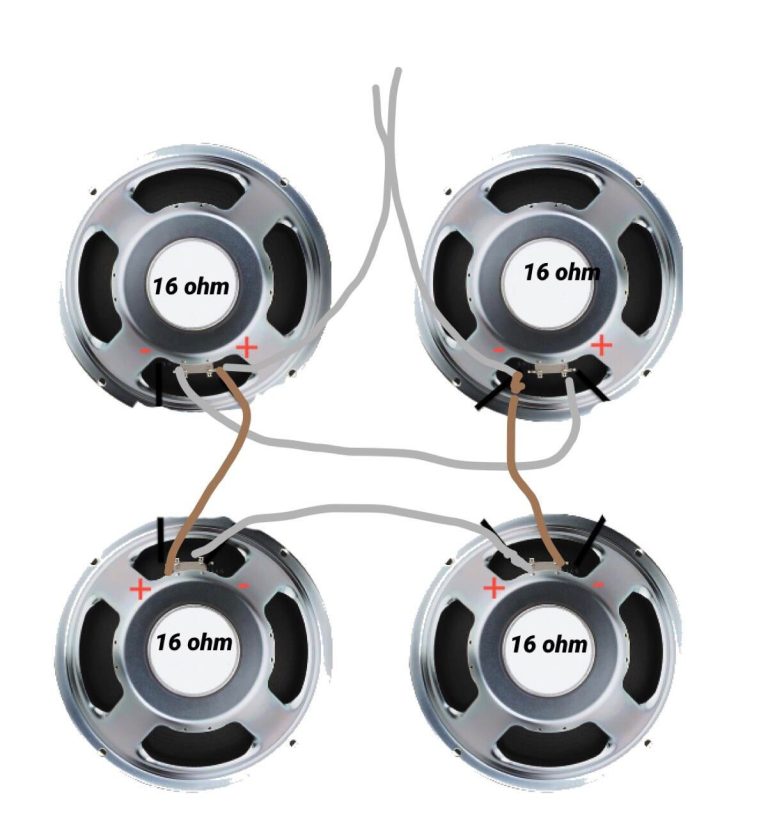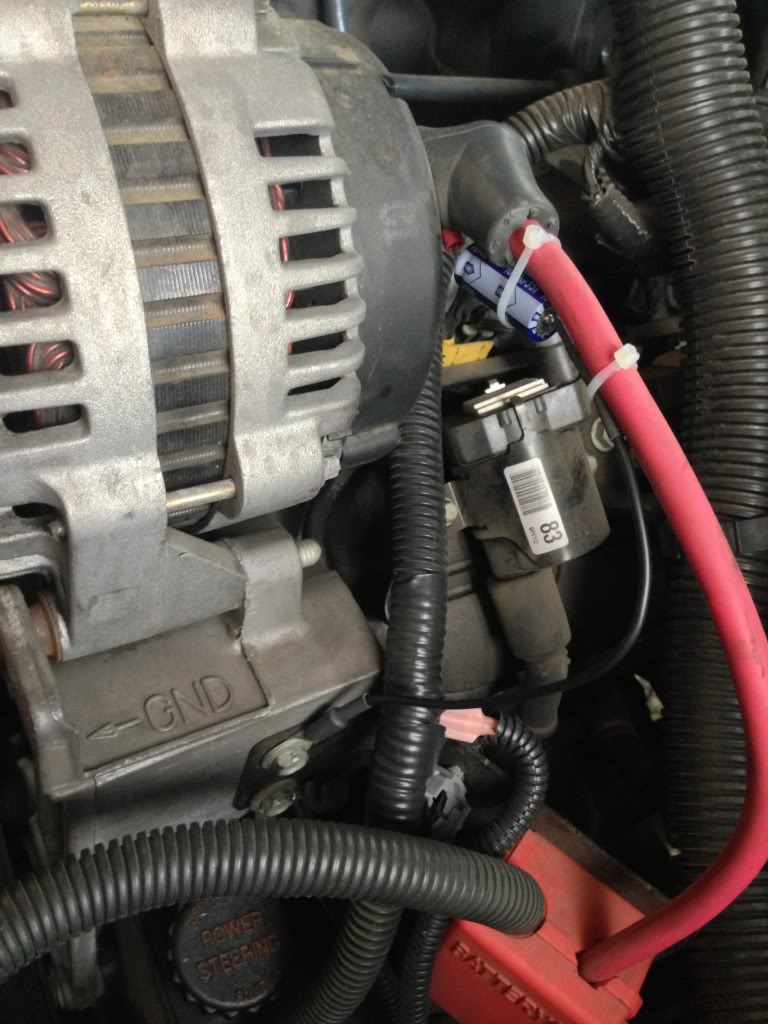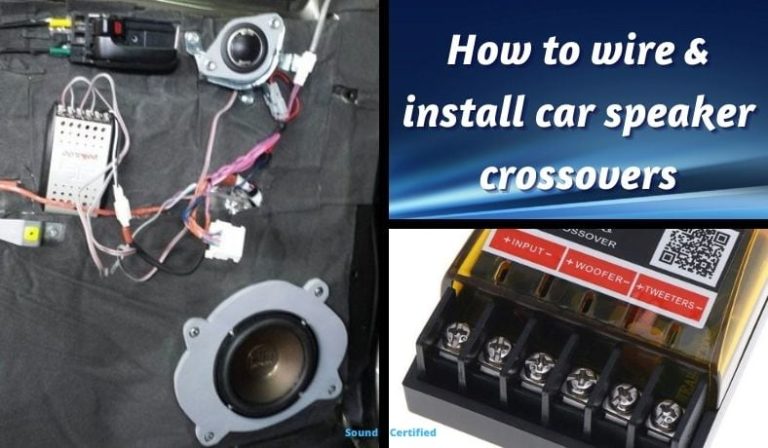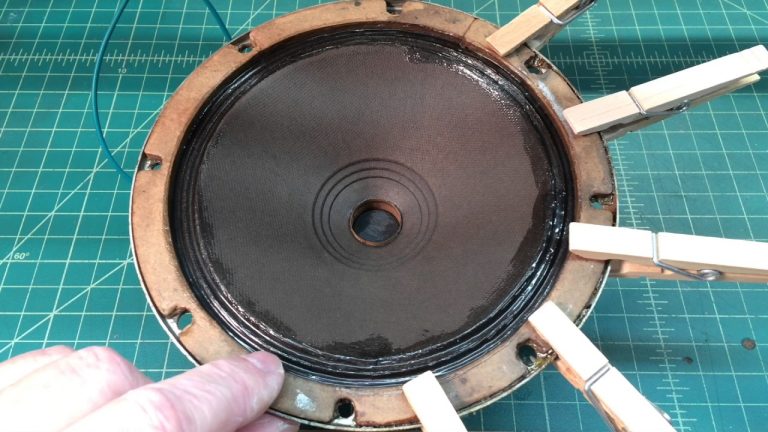How to Match Speakers to a Stereo Amplifier Or Receiver?
To get the best sound from your stereo amplifier or receiver, you need to Match Speakers to a Stereo Amplifier Or Receiver?. This can be done by using a simple formula that takes into account the wattage of the amplifier and the sensitivity of the speakers. The goal is to have an amplifier that is powerful enough to drive the speakers without distortion.
- Matching speakers to a stereo amplifier or receiver is a process that involves understanding the capabilities of both the speakers and the amplifier
- The first step is to determine the power rating of the amplifier, which will help to identify how many watts per channel the amplifier can output
- The next step is to look at the impedance of the speakers, which will tell you how much power the speaker can handle
- Once you have an understanding of both the power rating of the amplifier and impedance of the speakers, you can then begin to narrow down your choices for speakers
- It is important to remember that not all amplifiers are created equal, so it is important to choose an amplifier that has enough power to drive your chosen speakers

Credit: www.qacoustics.co.uk
Should My Amp Match My Speakers?
The question of whether or not your amplifier should match your speakers is a common one, and there’s no easy answer. On the one hand, it can be argued that since amplifiers and speakers are both audio components, they should work well together. On the other hand, some people believe that mismatched components can actually sound better than those that are matched.
Ultimately, it comes down to personal preference and what sounds best to you. If you’re looking for a place to start, we would recommend matching your amplifier with your speakers if possible. This will help ensure that your system is balanced and that each component is working optimally.
However, don’t be afraid to experiment – you may find that mismatched components sound better to you!
How Do I Know If My Speakers are Compatible With My Receiver?
If you’re looking to upgrade your home theater system and want to make sure your speakers are compatible with your receiver, there are a few things you’ll need to take into consideration. First, you’ll need to know what type of receiver you have. There are three types of receivers: Dolby Digital, DTS, and Dolby Pro Logic.
Each type of receiver has its own specific set of speakers that it’s compatible with. Dolby Digital receivers will typically have five or more speaker inputs and are compatible with Dolby Atmos-enabled speaker systems. DTS receivers typically have seven or more speaker inputs and are also compatible with Dolby Atmos-enabled speaker systems.
Finally, Dolby Pro Logic receivers have only four speaker inputs but can still be used with most surround sound speaker setups. Once you know what type of receiver you have, the next step is to determine what size speakers will best fit your needs. Home theater systems typically come with either small bookshelf speakers or larger floor-standing speakers.
If you have a small space, then bookshelf speakers may be the way to go. However, if you have a large room or want more powerful sound, then floor-standing speakers would be a better option. Finally, you’ll need to decide on a budget for your new home theater system.
Speaker prices can range from a few hundred dollars up to several thousand dollars depending on the brand, size, and features desired. By taking all of these factors into consideration, you can narrow down your choices and find the perfect set of speakers for your home theater system!
How Do I Match Speakers to a Stereo Amplifier?
There are a few things to consider when choosing an amplifier for your speakers. The first is the power output of the amplifier. You’ll want to make sure that the amplifier can provide enough power to drive your speakers without distortion.
The second is the impedance of the amplifier and speaker. Most amplifiers are designed to work with 8-ohm speakers, but some may be able to drive 4 or 16-ohm loads as well. Be sure to check the specifications of both the amplifier and speaker before making a purchase.
Finally, you’ll want to consider the features that are important to you. Some amplifiers may have built-in DACs or phono preamps, while others may offer Bluetooth connectivity or remote control capability. Choose the features that best meet your needs and budget.
Will Any Amp Work With Any Speakers?
No, not all amplifiers will work with all speakers. The reason for this is that each amplifier has its own impedance, which needs to match the impedance of the speaker in order for the two to work together properly. If the impedances don’t match, then the amplifier won’t be able to deliver enough power to the speaker, and the sound quality will suffer.
How to Select an Amp or Receiver to Match the Impedance and Power Needs of your Speakers?
How to Match Speakers to Amp
If you’re looking to get the best sound out of your speakers, it’s important to match them with an amplifier that can provide the right amount of power. There are a few things to keep in mind when choosing an amp for your speakers. First, you’ll need to consider the wattage rating of your speakers.
This will tell you how much power they need in order to produce sound. Make sure that the amplifier you choose can provide at least this much power. Next, you’ll want to take into account the sensitivity of your speakers.
This measures how efficiently they convert electrical energy into sound. Speakers with a higher sensitivity rating will require less power from an amplifier to produce the same volume of sound as those with a lower sensitivity rating. Finally, you’ll need to think about the impedance of your speakers.
This is a measure of how much resistance they have to electrical current. Speakers with a higher impedance will require more power from an amplifier than those with a lower impedance in order to produce sound at the same volume. When choosing an amplifier for your speakers, it’s important to keep all of these factors in mind in order to get the best possible sound quality.
With a little research, you should be ableto find an amp that’s perfect for your setup!
Matching Amplifier to Speakers Guide Pdf
Matching an amplifier to your speakers is important in order to get the best sound quality out of your system. There are a few things you need to take into consideration when choosing an amplifier, such as power output, impedance, and sensitivity. This guide will help you choose the right amplifier for your speakers so you can enjoy the best possible sound.
When choosing an amplifier, the first thing you need to consider is how much power it can output. The amount of power an amplifier can produce is measured in watts. You’ll want to make sure that the amplifier can produce enough power to drive your speakers at their peak levels without distortion.
To do this, you’ll need to know the sensitivity of your speakers. The sensitivity rating tells you how much power is needed to produce a certain volume level from the speaker. The next thing you need to consider is impedance.
Impedance is measured in ohms and tells you how much resistance the speaker has to electrical current. A lower impedance means that less current is needed to drive the speaker, which can be helpful if your amplifier doesn’t have a lot of power output. However, if your amplifier does have plenty of power, then a higher impedance speaker may be better so that it doesn’t draw too much current and cause distortion.
Once you’ve considered these factors, you should have a good idea of what kind of amplifier will work best with your speakers.
How to Match Speakers to Amp Car Audio
If you’re looking to get the most out of your car audio system, it’s important to match your speakers to your amp. A good rule of thumb is that the power output of your amp should be twice that of your speakers. So, if you have 50 watt speakers, you’ll want an amp that puts out at least 100 watts.
When choosing an amplifier, pay attention to the RMS (root mean square) power rating rather than the peak power rating. The RMS power rating is a better measure of the amp’s true capabilities and is what you should use to determine how much power your speakers can handle. Once you’ve selected an amplifier, it’s time to choose your speakers.
Again, pay attention to the RMS power rating rather than the peak power rating. You’ll want to choose speakers that have an RMS rating that is equal to or slightly higher than the RMS rating of your amplifier. This will ensure that your system sounds great and doesn’t get damaged by being over-powered.
If you’re not sure what size or type of speaker will best fit into your car, consult with a professional car audio installer. They can help you select the right combination of components for your specific vehicle and listening preferences.
How to Calculate Speaker Watts for Amplifier
When choosing an amplifier for your speaker system, it is important to make sure that the power output of the amp is sufficient for the wattage rating of your speakers. Use this simple formula to calculate the minimum wattage required for your amplifier: Speaker Wattage Rating (in watts) x Number of Speakers = Minimum Power Output Required (in watts)
For example, if you have a pair of 100-watt speakers, you will need an amplifier with a minimum power output of 200 watts. Keep in mind that this is just a general guideline – your actual power needs may be higher or lower depending on the specific circumstances. In general, it is always better to err on the side of caution and choose an amplifier with more power than you think you need.
Conclusion
It’s easy to overlook the speakers when setting up a stereo system. But if you want great sound, it’s important to choose the right speakers to match your amplifier or receiver. Here are a few things to consider when choosing speakers for your stereo system.
The first thing to consider is the size of the room where the stereo will be used. If you have a large room, you’ll need larger speakers that can fill the space with sound. In a smaller room, you can get away with smaller speakers.
The next thing to consider is how much power you need from your amplifier or receiver. If you have a powerful receiver, you’ll need less powerful speakers. But if you have a weaker receiver, you’ll need more powerful speakers.
Finally, think about what kind of music you like to listen to. If you like loud, rockin’ music, look for speakers that can handle lots of power and produce plenty of bass.






